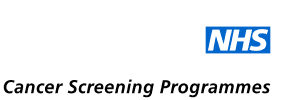Cervical Cancer Deaths Fall Below 1000 As New Research Suggests Changes To Screening Frequency

Cervical Cancer Deaths Fall Below 1000 As New Research Suggests Changes To Screening Frequency |
 |
|
|
Published 1st July, 2003 For the first time ever deaths from cervical cancer have fallen below 1,000 in England. Figures released by National Statistics reveal that in 2002, 927 deaths from cervical cancer were registered1. "This figure will help reassure the 4.4 million women who are invited for screening in England, that the NHS Cervical Screening Programme is effective in reducing the number of cases of cervical cancer and the death toll from the disease. Cervical screening is currently the most effective way of protecting women against cervical cancer as it detects abnormal cells that may, if left untreated, develop into cancer," says Julietta Patnick, Director, NHS Cancer Screening Programmes. Whilst the NHS Cervical Screening Programme is having a clear impact on cervical cancer mortality in England, new research published today could lead to an even more effective screening programme for women. A paper published in the British Journal of Cancer2 suggests that the frequency of cervical screening should change according to a woman's age. The paper, by Cancer Research UK scientists, uses data supplied by the NHS Cancer Screening Programmes which part-funded the study. It recommends that
"The optimal frequency of cervical screening has been the subject of debate since the introduction of the NHS Cervical Screening Programme which is why we asked Cancer Research UK to evaluate the interval for cervical screening." "Today's recommendations will be given to the Advisory Committee on Cervical Screening to consider. The NHS Cervical Screening Programme has always used sound research evidence where it is available. We are always looking for ways in which we can improve the quality of the programme and offer greater protection for women, while protecting them from over screening," said Julietta Patnick. 1 Health Statistics Quarterly, Summer 2003, National Statistics Notes to Editors
|
Cervical screening programme index What happens at a Diethylstilbestrol (DES) exposed women Who does what in the NHS Cervical Screening Programme |
||||||||
|
||||||||||